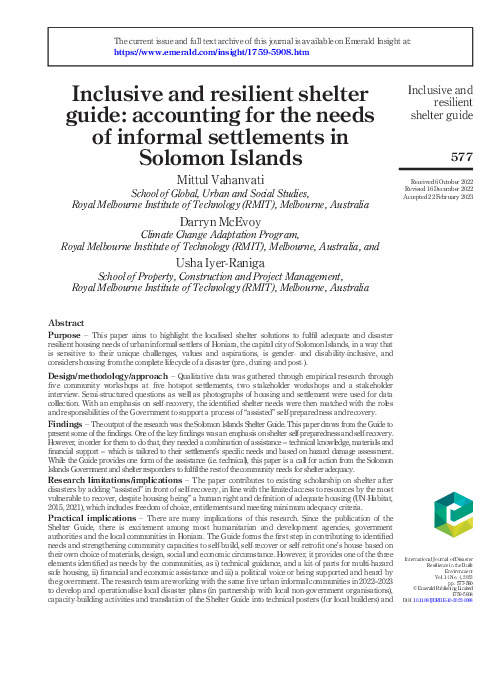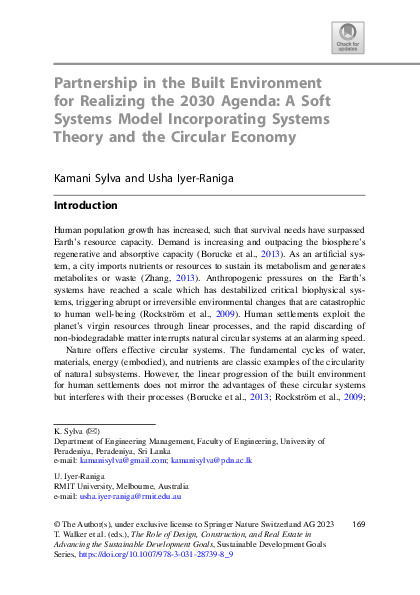Mapping sustainability indicators for circular built environment in the Global South
The UN Sustainable Development Goals (SDGs) offer a framework for a better future by focusing on people, planet, prosperity, peace and partnerships. SDGs directly relating to the built environment are SDG 11, SDG 9 and SDG 12. The SDGs do not explicitly mention circular thinking or practices. Yet, the principles underpinning sustainability and circularity are the same, especially those focusing on resource efficiency and conservation. The aim of this paper is to map the SDGs against circular built environment indicators in the Global South. In doing so, not only is the alignment between the National Determined Contributions (NDCs) and the built environment established, but the significant position that the built environment plays in the rapidly growing cities of the Global South is also strongly supported. Using secondary research, this paper first investigates the primary and secondary SDG indicators for achieving circular built environments by the One Planet Network’s Sustainable Buildings and Construction programme. This is then validated by undertaking workshops with experts in the Global South to determine an interim set of SDG indicators relate to circular economy such as local jobs, design considering climate mitigation, resilience and adaptation and such other indicators. The paper recommends priority indicators for achieving circular built environments in the Global South and suggests further research needs to be undertaken to finalise these indicators.
Professor Usha Iyer-Raniga is at the School of Property and Construction Management at RMIT University. Usha is co-leading the One Planet Network’s Sustainable Buildings and Construction Programme (SBC), United Nations 10 Year Framework of Programmes on Sustainable Consumption and Production (UN 10FYP SCP) aligned with Sustainable Development Goal 12, as well as the newly formed Integrated Platform for Circular Economy, Climate Resilience, and Energy. This paper is directly related to the work of the OPN SBC programme.


